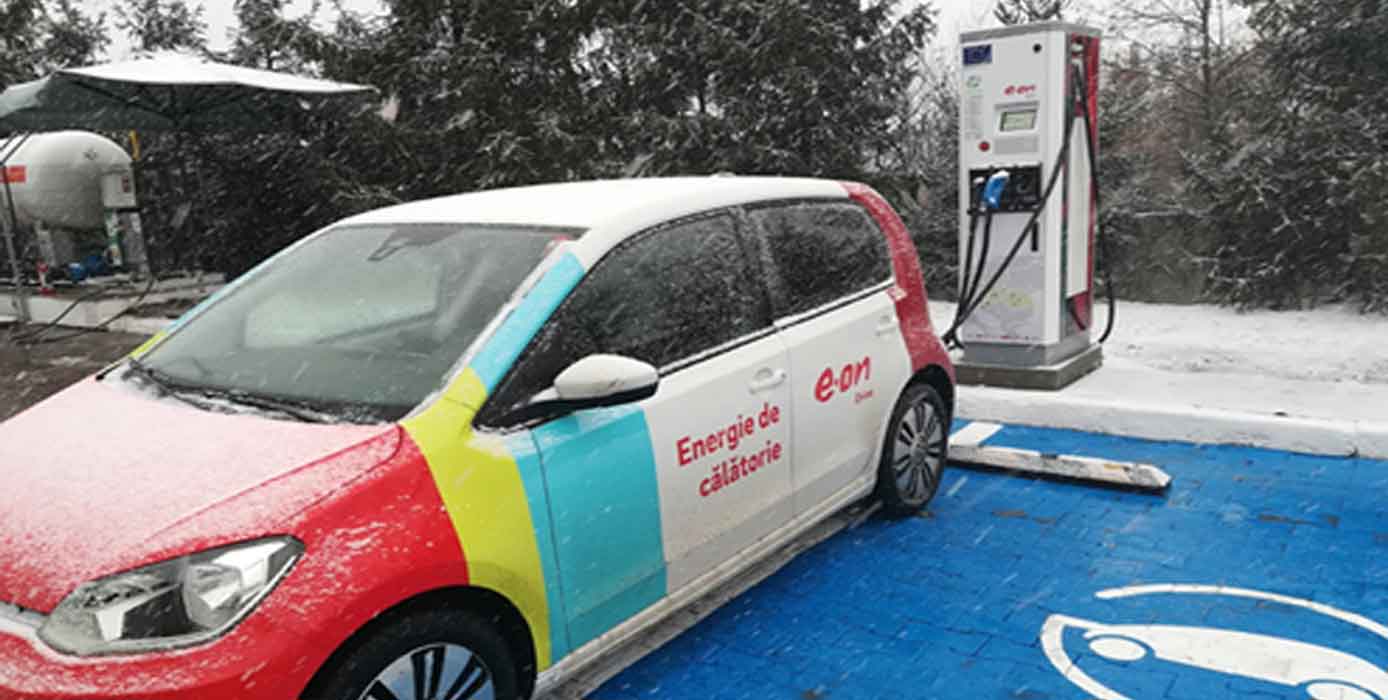Next-E Project
The NEXT-E project represents a unique cooperation of four leading companies from the electricity and oil & gas sectors...

The NEXT-E project represents a unique cooperation of four leading companies from the electricity and oil & gas sectors joining forces with OEMs (car manufacturers) to create interoperable and non-discriminatory EV charging network, as a viable alternative to the combustion engine vehicles. The consortium consists of companies of E.ON Group (Západoslovenská energetika in Slovakia, E.ON Czech Republic, E.ON Hungary, E.ON Romania), MOL Group (represented by subsidiaries in all 6 participating countries), Hrvatska elektroprivreda in Croatia, PETROL (in Slovenia and Croatia), as well as Nissan and BMW.
In July 2017, the NEXT-E project was selected by the European Commission for co-financing through the Connecting Europe Facility (CEF). The NEXT-E consortium was granted €18.84 million to implement the project, which is the largest CEF grant ever awarded to an EV project. Within the framework of this project, the consortium will install 222 multi-standard fast chargers (50 kW) and 30 ultra-chargers (150-350 kW) along TEN-T core corridors and core network. For the first time ever, long distance travel, based 100% on electricity, will be possible across 6 Cohesion countries, with connection to the neighbouring countries.
Currently, EV charger deployments are scattered and often un-coordinated, posing a risk of overlaps or gaps in the network. The NEXT-E project was launched to address this challenge, and to create a continuous and cost-effective network that ensures the ability for long-distance and cross-border driving. The project will also leverage existing experience into countries without significant EV activities to date, such as Hungary and Romania. In order to ensure interoperability to the West and create a one fully connected network, the project will be coordinated with other ongoing CEF co-financed projects, i.e. ULTRA-E, EAST-E and FAST-E.
This Project will enable a real-life trial and data generation, allowing comprehensively evaluating critical parameters before roll-out scale investments backed by private and public companies, considering also funding by innovative financial instruments such as from the EIB. Corresponding studies will focus on product innovation, go-to-market preparation, policy evaluation and compliance with national implementation plans, ICT-systems and roaming considerations. It will also evaluate stationary solar PV production, renewable energies integration, and energy storage.
The deployment of fast chargers is expected to start in 2018, while the installation of the ultra-chargers is planned for 2019 in order to prepare for the arrival of a new generation of long-distance EVs. The full deployment is expected to be concluded by the end of 2020.
Link to the webpage(s):
https://harta-statii.eondrive.ro/
